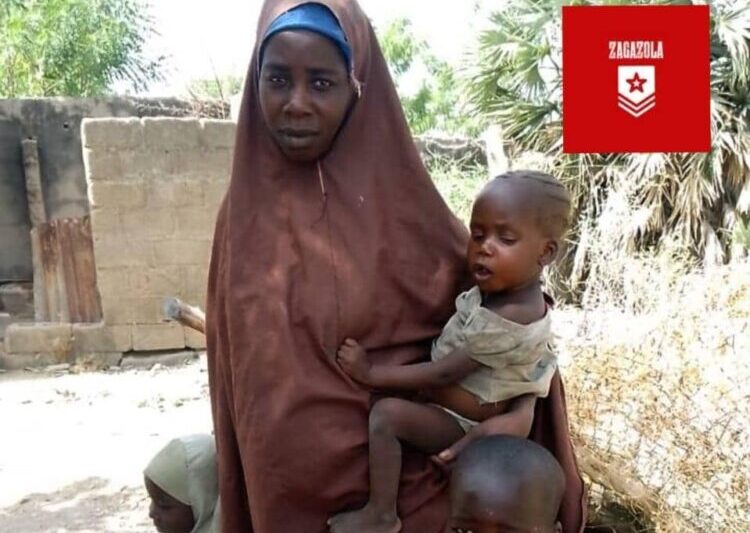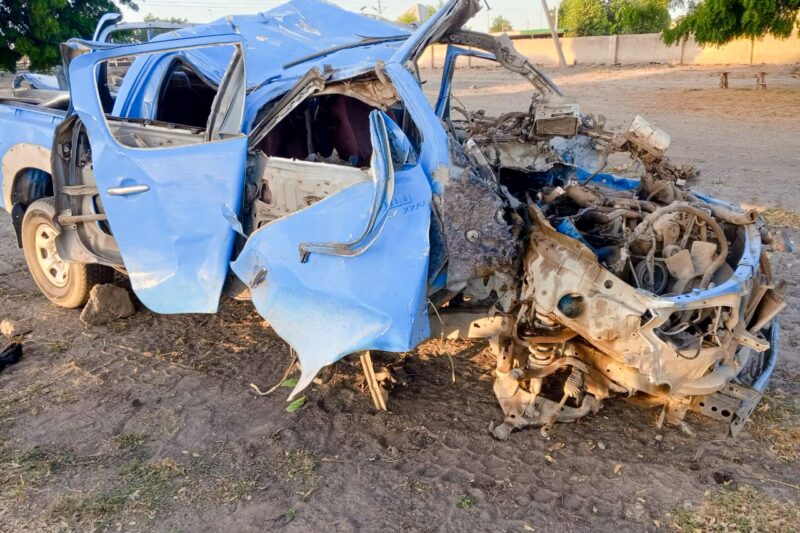The lack of clean and safe water is a daily challenge for many Nigerians, but the problem is particularly acute in northern Nigeria where only 30% of the population has access to safe drinking water and adequate sanitation.
Lack of access to clean water contributes to a high prevalence of waterborne diseases, threatens the livelihoods of smallholder farmers, and contributes to low levels of school enrolment, especially among girls.
Humanitarian aid agencies, including USAID, the World Health Organisation (WHO) and the United Nations Children’s Fund (UNICEF), are doing their best to address the water crisis.
The citizens of Zarmari, a town in the Konduga Local Government Area in Borno State, are no strangers to this crisis – they have been suffering from a lack of water for more than 30 years.
Traditional ruler Bulama Crema of Zarmari told RNI reporter Abubakar Mustapha that the problems began when the main borehole – constructed at the behest of the former governor of Borno State, Mohammed Goni, in 1983 − collapsed.
“We have to trudge every day on a rough, bumpy and rocky road to get water from the town of Chabbal, which is about 3km away,” he said. “Some people use donkeys to fetch and carry back the water, but for most people it is an arduous trek.”
Crema said the community had asked many international non-governmental organisations to construct a borehole for them but they had not succeeded because the water table was so deep that it could not be easily reached.
He had complained about the lack of boreholes to the Konduga authorities several times, but they had not reacted or even tried to find a solution.
Crema said residents usually collected two gallons (just more than 7.5 litres) a day. But not everyone was that lucky. On some days they returned home without water because it was not always available.
The community of Zarmari desperately needed a large borehole that could supply water to everyone in the town, he said, adding that he would approach the Borno State government to petition for this.
“That would solve all our water issues permanently,” Crema said.
Falmata Audu, a resident of Zarmari, said she was reluctant to use too much water at home because the trek to and back from Chabbal was so exhausting. She described it as an arduous ordeal.
“Just the thought of making the trek there and back makes me tired. The road is not in a good condition and it is very heavy to carry the water back. If you don’t have a donkey, it’s a really hard thing to do,” she said.
Audu said that many years ago there used to be a well that the community used, but it had stopped working or dried up.
“Since the main borehole built by Goni collapsed, there has not been any government official who has tried to get it fixed or get a new one built. And so we just have to trek on,” she said.
The Pacific Council on International Policy said one of the reasons there was a water crisis in northern Nigeria was the number of attacks by extremists, some of whom used water as a weapon by poisoning freshwater points.
In March, UNICEF said that nearly one-third of Nigerian children – 26.5 million – did not have enough water to meet their daily needs.
“The world’s water crisis is not coming – it is here, and children are its biggest victims,” said Peter Hawkins, the UNICEF representative in Nigeria.
“When wells dry up, children are the ones missing school to fetch water. When droughts diminish food supplies, children suffer from malnutrition and stunting. When floods hit, children fall ill from waterborne illnesses. And when water is not available in Nigerian communities, children cannot wash their hands to fight off diseases,” said Hawkins.
Waterborne diseases include cholera, diarrhoea, typhoid, amebiasis, hepatitis, gastroenteritis, giardiasis, campylobacteriosis, scabies, and worm infections.
Humanitrian aid officials agreed that water was of particular importance in the time of COVID-19, which is a communicable virus. Preventive measures outlined by the WHO included wearing a face mask, maintaining social distance and washing hands regularly.
It was therefore imperative for people around the world to have access to clean water. Water was not only a basic human need but could save lives.








